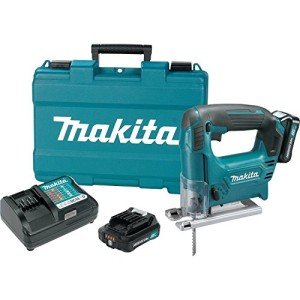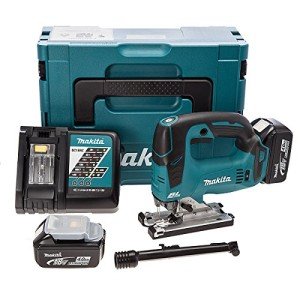The Reasons You're Not Successing At Power Tool Sale
페이지 정보
작성자 Mary 작성일 24-12-22 20:21 조회 2 댓글 0본문
 Power Tool Sales and Marketing Strategies for B2B Retailers
Power Tool Sales and Marketing Strategies for B2B Retailers Power tools are essential for both professional and personal use. The demand for power tools is at or close to pre-pandemic levels despite a slowdown due to the COVID-19 epidemic that will hit in 2021.
Power tools are essential for both professional and personal use. The demand for power tools is at or close to pre-pandemic levels despite a slowdown due to the COVID-19 epidemic that will hit in 2021.Home Depot is the leader in the sales of power tools in terms of dollar share. Lowe's is not far behind. Both are competing against power tools manufactured in China.
Tip 1: Create an Efficacious Brand Commitment
A lot of manufacturers of industrial products place emphasis on sales over marketing. This is because a long-term purchase requires a lot of back-and-forth communication and in-depth knowledge of the product. This type of communication is not conducive to emotional marketing tactics.
However, companies that manufacture industrial tools need to rethink their marketing strategy. The digital world has surpassed traditional companies that rely on a small group of retailers and distributors for Tools stores near me sales.
One of the most important factors in power tool sales is brand commitment. If a client is loyal to a particular brand and is loyal to a brand, they are less sensitive to communications from competitors. They are also more likely to purchase the client's products again and to recommend them to friends and family.
To make a successful impact in the United States market, you need to have a well-planned strategy. This involves adapting your tools to local needs and positioning your brand in a way that is competitive, and using marketing platforms and distribution channels. Collaboration with local authorities, associations and experts is also crucial. When you do this you can be sure that the cheap power tools online tools you purchase comply with the country's regulations and standards.
Tip 2: Be aware of Your Products
In a world where product quality is so crucial, retailers should be aware of the products they offer. This will enable them to make informed decisions about what they offer. This knowledge could also be the difference between a successful sale and a bad one.
Knowing that a certain tool is perfect for a particular project will aid in matching the right tool to the requirements of your customer. This will help you build trust and loyalty with your customers. This will ensure that you provide an entire service.
Understanding DIY culture trends can help you understand your customers' needs. For instance, more homeowners are undertaking home improvement projects that require the use of power tools. This can result in an increase in sales of these tools.
According to Durable IQ, DeWalt leads in power tool unit share at 16%, while Ryobi and Craftsman brands have seen their share decline year-over-year. However sales in stores and Online Tools Store are increasing.
Tip 3: Offer Full-Service Repair
The most frequent reason that a buyer makes a purchase is to either replace one that is broken down or to take on a new project. Both offer the possibility of upselling or adding on sales.
According to the Home Improvement Research Institute's (HIRI) 2020 Power Tools and Accessories Product Purchase Tracking Study, 35 percent of power tool purchases resulted from an anticipated replacement. Customers may require additional accessories or upgrade to a more powerful model.
Whether your customer is an experienced DIYer or is new to the hobby, they'll likely require replacing their power tools' carbon brushes as well as drive belts and power cords with time. Being on top of these important items will allow your customer to get the most out of their investment.
When buying power tools, technicians take into consideration three factors: the application, the power source and security. These factors aid technicians in making informed decisions about the best tools to use for their repairs and maintenance tasks. This helps them optimize the performance of their tools and lower the cost of ownership.
Tip 4: Always Keep Up With Technology
For instance, the most recent power tools offer advanced technology that enhances users' experience and sets them apart from competitors that still depend on old-fashioned battery technology. Wholesalers of B2B who stock and sell these tools could increase sales by focusing on professional and tech-savvy contractors.
Karch's business, Power Tools For Sale which has more than 30 years of experience and a 12,000 square feet tooling department is a testimony to the importance of staying up-to-date with new technologies. He says that manufacturers are constantly changing their designs for their products. "They used to hold their designs for five or 10 years, but now they're changing them each year."
In addition to embracing modern technologies, B2B wholesalers should also be looking to improve existing models. For instance, by incorporating adjustable handles and lightweight materials, they can lessen the fatigue that comes from prolonged use. These features are crucial for a lot of professional contractors who need to make use of the tools for long durations. The market for power tools is split into consumer and professional groups. This means that the major players are always working to improve their designs and create new features in order to appeal to a wider market.
Tip 5: Create a Point of Sales
The landscape of e-commerce has transformed the market for power tools. Data collection techniques have improved allowing business professionals to gain a better understanding of the market. This helps them develop more effective marketing and inventory strategies.
Using information from the point of sale (POS), you can track DIY projects your customers are completing when purchasing power tools and other accessories. Knowing the type of projects your customers are working on allows you to provide additional sales and upsell opportunities. It allows you to anticipate the needs of your customers to ensure that you have the appropriate products on hand.
You can also utilize transaction data to determine trends in the market, and then adapt production cycles accordingly. You can, for Power Tools online example, use this data to monitor changes in your brand's and retail partners' market shares. This allows you to align your product strategies to consumer preferences. In the same way, you can utilize POS data to improve inventory levels and reduce the risk of stocking up. It also helps to assess the effectiveness of promotional campaigns.
Tip 6: Establish a Point of Service
Power tools is a profitable complex market that requires significant marketing and sales efforts to stay competitive. In the past, gaining an advantage in this market was accomplished through pricing or positioning products. However, these tactics are not as effective in the current omnichannel environment where information is easily communicated.
Retailers who are committed to providing a high level of providing a high-quality service are more likely to retain customers and develop brand loyalty. Mike Karch, president of Nue's Hardware and Tools in Menomonee Falls, Wisconsin has a 12,000 square-foot department for power tools. Initially, his department featured a sampling of brands, but as he began to listen to contractor customers, he discovered that the majority were loyal to a particular brand.
To win their business, Karch and his team first ask customers what they want to do with the tool before showing them the options available. This gives them confidence to recommend the right tool for the job and builds trust with the customer. Customers who are familiar with their product are less likely than others to blame the retailer for a malfunction of a device on the job.
Tip 7: Create a Point of Customer Service
The market for power tools has become a very competitive area for hardware retailers. People who succeed in this category tends to be more devoted to a single brand than to carry a variety of manufacturers. The amount of space a retailer is able to devote to a specific category could determine the number of brands they can carry.
Customers frequently require assistance when they visit to purchase a power tool. When they're replacing an old tool that's broken or taking on an upgrade project, customers need expert advice from sales representatives.
Mike Karch, the president of Nue's Hardware and Tools, located in Menomonee Falls, Wisconsin, said that the employees at his store are trained to ask questions that will lead to a sale. He says they begin by asking the buyer what he or she plans to do with the item. "That's the key to determining the kind of tool to sell them," he adds. Then they ask about the experience of the customer with various types of projects and the project.
Tip 8: Be sure to be sure to mention your warranty
The manufacturers of power tools differ greatly in their warranty policies. Some are fully comprehensive, while others aren't as generous or do not cover certain components of the tool at all. It's important for retailers to be aware of the distinctions before making a purchase, because customers will buy tools from companies that offer warranties.
Mike Karch, president of Nue's Hardware and Tools in Menomonee Falls, Wisconsin, has a 12,000-square-foot power tool department and an repair shop power tools within the premises that can handle 50 kinds of tools. He has learned that many of his contractors are loyal to a particular brand. Therefore, he prefers to carry only a few brands instead of trying to carry samples of different products.
He is also happy that his employees are able to meet with vendors one-on-1 to discuss new products and exchange feedback. This personal contact is important because it helps build trust between the retailer and customers. Having good relationships with suppliers may result in discounts on future purchases.
- 이전글 5 Killer Quora Answers To Lightweight Foldable Electric Wheelchair Uk
- 다음글 20 Trailblazers Setting The Standard In Window Hinge Repair
댓글목록 0
등록된 댓글이 없습니다.
